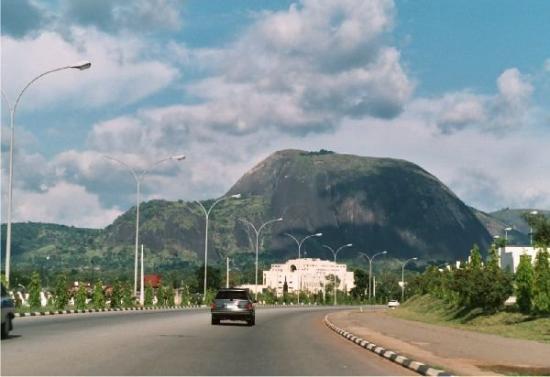In the Abuja Master Plan, a chapter was dedicated to the Regional Development Plan. It was observed that the dynamics of spontaneous urban growth respond to transportation and economics. Characteristically, in all modern metropolitan areas throughout the world, political boundaries tend to be ignored. Specifically, it was noted that relaxation of policy enforcement had resulted in unplanned growth. What was recommended was the establishment of a Special Joint FCT-State Planning District to control unwanted urbanisation which might occur both within the FCT and in the peripheral states adjoining the FCT.
It is estimated that over 70 per cent of the low-income work force and commercially engaged population in Abuja reside within the various borderline communities in Niger, Nasarawa, Kogi and Kaduna states. The result is unplanned shanty towns without basic infrastructure where living conditions are miserable and policy flaws are evident; existence of inappropriate legal and regulatory framework, dysfunctional market and overstretched pressure on infrastructure. The chaotic traffic, uncoordinated and virtually unplanned developments immediately across the FCT borders with Niger and Nasarawa states would have been appreciatively mitigated had the joint planning recommendation of the master plan been implemented.
The sudden rural urban transformation led to a traumatic shock in the traditional occupational way of life and a destruction of the socialisation process. This resulted in an unprecedented upset in the traditional development process, thereby increasing the level of poverty. The transition from a predominantly rural to urban life is a complex process with many contradictory and controversial aspects. It provides opportunities and benefits, but also has negative consequences; poverty, social inequality, slums settlements, environmental degradation, and lack of security. This is the fate of the various communities that make up the Federal Capital Territory and its borderline.
The cherished farming activities of the FCT border communities have been jeopardised. This is largely attributed to the landlessness of the people, since most of the farmlands have been converted to residential areas. Consequently, farmers change their economic activities to odd jobs, such as gathering and selling sand from riverbeds, mud block moulding, touting in motor parks and garages, among others. Another crucial dimension introduced in the FCT borderline communities is the rate of crime in the area. Prior to the setting up of FCT, the area now constituting FCT borderline communities were safe havens to live and pursue any economic activity unhindered. The surged population has brought in all manners of characters and subsequently given rise to heightened crime rates.
- Abuja metropolitan area expansion and challenges (I)
- Games Village residents kick as FCTA demolishes secretariat
It is instructive to understand that the developments along the expressways linking the states across the FCT border bear similar characteristics both in Niger and Nasarawa states. These were the absence of planning, standard layouts and land use plans prior to the commencement of the developments. They were simply individual farmlands acquired by dissimilar developers from the traditional landowners and converted for commercial, residential, or other developments.
They might have later applied and secured rights of occupancy from the state governments to exert legal rights to land ownerships. But there would never be a proper or standard development control method by the state urban development boards, due to the absence of any development control instrument or manual. Also, no juggling can produce standard operational instruments so long as there was no proper layout with specific land uses and development densities.
It was the planning precedence of the Federal Capital city that enabled the provision of a standard land use plan and development control manual that guides development and control in the FCT. Hence, the outstanding differences between what exists in terms of planning and control of development, and checking of illegal developments in the FCT in comparison with what exists in the states.
In the circumstances, the available option in the states is urban renewal. It is imperative to know that the beauty of cities doesn’t depend on the high rise buildings it boasts of, but the quality of planning and the level of standard facilities and the adequate environmental protection it provides. Adequate standards must be respected. These include land use, density and building height controls. For those commercial and multifunctional plots located along expressways or arterial roads, especially those connecting to the states, the provision of separate access roads for access must be ensured. All parking requirements of commercial developments along these expressways, specifically at Zuba, Madalla, Gauraka, Nyanya and Mararaba and other similar border settlements in the FCT, Niger and Nasarawa states must be determined and adequately provided where traffic flow would not be endangered.
All these buttressed the points for the necessity of establishment of the FCT Borderline Community Development Commission which, among others, should be mandated with the powers for the implementation and enforcement of the above recommendations.

 Join Daily Trust WhatsApp Community For Quick Access To News and Happenings Around You.
Join Daily Trust WhatsApp Community For Quick Access To News and Happenings Around You.


